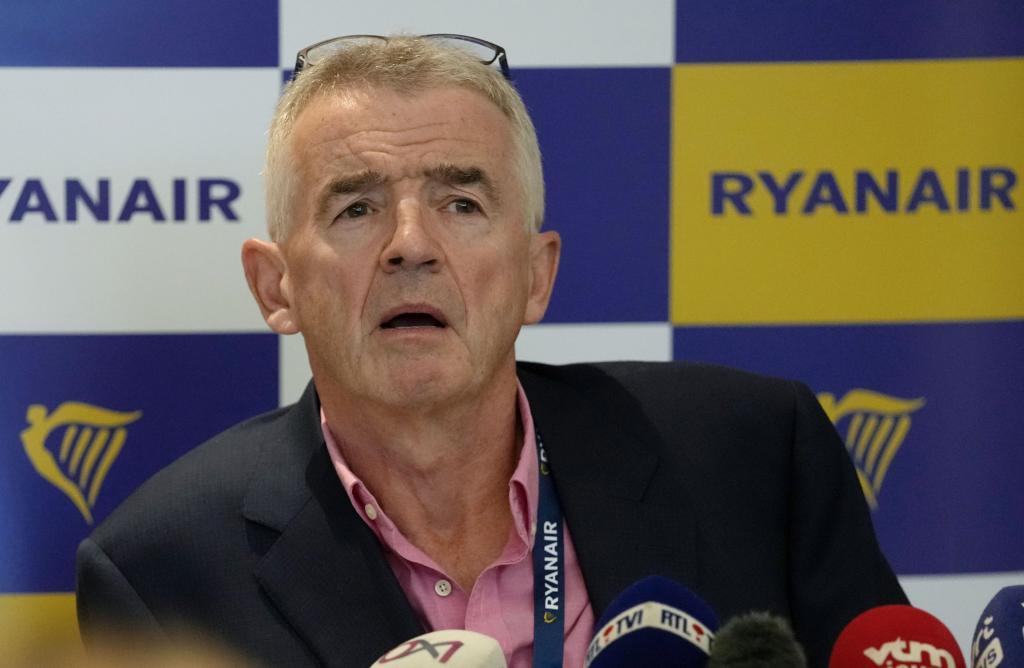The war between Ryanair and the Minister of Consumer Affairs is total and irreversible. Pablo Bustinduy wants to keep a close eye on airlines, specifically low-cost companies that were fined for abusive practices with ¤179 million last November. With a ¤108 million fine, Ryanair bore the brunt of a historic case. The Irish group appealed the fine and in June obtained a temporary suspension. But in Dublin, they know that the battle has only just begun. Ryanair wants to review Consumer Affairs' documents in search of any legal loophole that would allow them to definitively overturn the fine and has requested the complete file from the ministry from the Transparency Council, accusing them of "cover-up". Consumer Affairs states that they provided the documents requested by the airline to the Judiciary weeks ago.
Ryanair and Norwegian Air, another sanctioned airline (¤1.6 million), appealed Consumer Affairs' order at the Madrid High Court (TSJM). Given the magnitude of the fine and the terms of the ministry's resolution, which instructed companies to stop numerous practices classified as "very serious" violations, the judicial body granted the requested precautionary measures to both companies. Although the fine has been temporarily suspended, the TSJM has imposed bank guarantees on the companies for around ¤110 million.
In December of last year, Ryanair requested full access to the background of the sanctioning process from the ministry and "a complete copy of each and every action that had been carried out in the file." In January, Bustinduy's department provided the requested information to the company, and again in April updated the documents collected up to that point. Ryanair made a new request to Consumer Affairs shortly after, believing that new documents may have been added to the administrative file. On that last occasion, the ministry did not respond to the company, leading the airline to escalate the case to Transparency, which, a few weeks ago, backed their request.
The latest request from the Irish company was made while the judicial process was already underway, which, according to Consumer Affairs, explains why the ministry did not respond to the last document delivery since, once a sanction is brought to court, all information exchange must be done through the competent judicial body. "The airlines have had access to all the necessary documentation within the times and forms established by the procedure. In this specific case, the airlines have had access to all the necessary documentation to prepare their appeals through the judicial procedure, which is the path established by law for this case, as the final order had already been issued," they state from the ministry.
Consumer Affairs emphasizes that the sanctioned companies, with Ryanair at the forefront, had access through the judicial route to the required documents even before the aforementioned Transparency resolution. For its part, Ryanair has not specified to this medium whether, to this day, the information has been provided to them, but they have celebrated the Council's resolution that "condemns the breach of the Administration's transparency regulations by Pablo Bustinduy."
Since the ministry made its sanction public, Ryanair has turned the confrontation with the Ministry into a personal crusade against Minister Sumar. The multinational's CEO, Michael O'Leary, called Bustinduy a "crazy communist minister" at a press conference last January. Days later, he was photographed next to the minister's image dressed as a clown and threatened that if ticket prices rose, it would be because of the Consumer Affairs minister.
Now, official sources from Ryanair once again criticize the minister in conversation with EL MUNDO for his "refusal to allow Ryanair access to the file of their own case," which they describe as a "cover-up" because he "cannot explain or justify these illegal and arbitrary fines."
The order signed by Bustinduy served to confirm the sanctions proposed by the General Secretariat of Consumer Affairs and Gambling, and to dismiss the appeals filed by the affected companies following an investigation initiated by Consumer Affairs in 2023. Among the sanctioned practices was charging passengers for hand luggage or for reserving adjacent seats to accompany dependent persons.
In addition to Ryanair and Norwegian, the sanctions also targeted Vueling (fined ¤39.3 million), Easyjet (¤29 million), and Volotea (¤1.2 million). In the fine against the Irish group, their usual practice of charging "an excessive amount" for printing tickets at the terminals also weighed in.
The European Parliament gave Consumer Affairs a boost last June in its crusade against low-cost airlines by ratifying by a large majority (38 votes in favor out of a total of 42) that charging for carrying a suitcase in the cabin is "illegal."
Consumer Affairs does not see the precautionary suspension of the sanctions imposed by the TSJM as a setback, as it "does not judge the substance of the matter." "It is another step in the course of a judicial procedure that has not yet delved into the heart of the matter. Consumer Affairs' position is clear: charging for hand luggage brought into the cabin or for selecting seats to accompany dependent persons is illegal. Meanwhile, Ryanair is confident in obtaining the total annulment of the fine.
